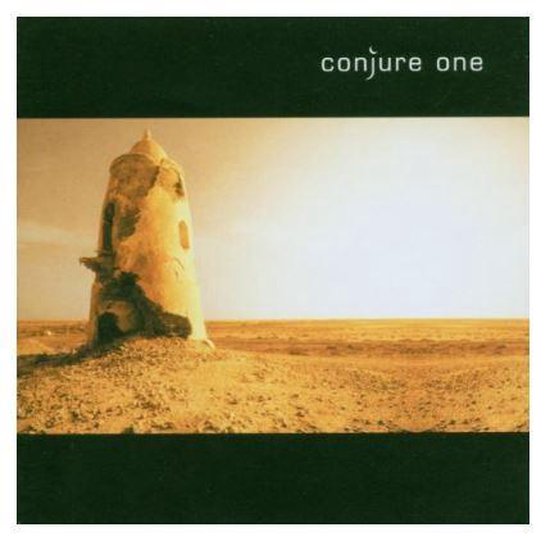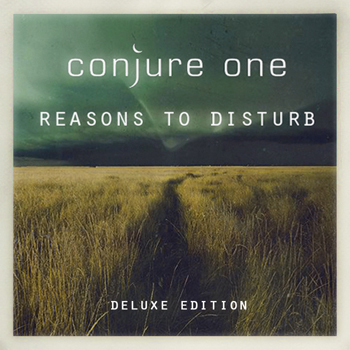

That electronic rock element found on “Like Ice” makes additional appearances later in the album, but, Exilarch isn’t just a one-dimensional album relying solely on hooks and guest vocalists. The surprising moment of this song – and the proof that Rhys Fulber has finally developed Conjure One’s own identity – comes about half way through when it suddenly introduces a distorted guitar riff and begins to feel more like the electronic rock of Essence of Mind than the world music of Delerium. “Like Ice” features the vocals of Jaren Cerf ( CMJ) and spends the first few moments of its duration building an exotic and alien soundscape before moving directly into a smooth electro-pop beat with layered synths and gorgeous vocals. Lead single, “Like Ice,” offers all of those elements and displays just how seamlessly they work together. Those electronic elements share time with chill, sensual trip-hop grooves, Middle Eastern influences, enchanting female vocals, and even the occasional bit of electro-rock. The layers of dark, flowing synth and deep bass that make up the foundation of each track is just the beginning of what Exilarch offers. Exilarch drops the overt pop references, the extended world music plod, and the blatant Delerium aping in favor of a sound that skirts the limits between darkness and beauty, and does so in a very direct and concise way.įor long-time Delerium fans, it would be easy to describe this album as a blend of Semantic Spaces and the Spheres albums, but that is just an easy reference point. Conjure One’s third album, Exilarch, will finally change all of that. Of course, there’s the artistic autonomy and all of the freedom that it brings – but the fundamental fact is that the music was never up to par compared what he had done in Delerium.

It just didn’t seem to make sense that the man responsible for some of Delerium’s best albums would leave in order to create the exact same music, albeit never as good, under a different name. The reason for Conjure One’s existence has always been a mystery to me.

Fulber himself would making his singing debut with a version of the Buzzcocks classic "I Believe" included on the 2005 album Extraordinary Ways.Review Summary: Rhys Fulber finally proves that Conjure One isn't just a cheap Delerium knock-off. A year later, Fulber joined Sinéad O'Connor, Poe, and Israeli singer Chemda for a self-titled second album.

Redemption marked Conjure One's proper debut in 2001. Going by the moniker Conjure One in 1999, Fulber traveled around the world for a three-year period, absorbing all sorts of world music for an interesting electronic sound. Pete Shelley's synth-driven Homosapien release was the way to Fulber's heart by 14, he'd received a drum machine and a keyboard as a gift from his father and his electronic musical visions were underway. By 11, he was a punk rock kid buying Dead Kennedys records and learning the ways of the studio. His dad was a musician, and by age five, Fulber was playing drums. Born and raised in Vancouver, British Columbia, Fulber was surrounded by instruments at an early age. Music has always been an integral part of his life. After spending nearly two decades as a part of electronica's pioneering acts, Fulber emerged as Conjure One. Rhys Fulber is best known for his work with Delerium and Front Line Assembly, while also highly regarded for his production for the likes of Sarah Brightman, Josh Groban, P.O.D., and Mudvayne.


 0 kommentar(er)
0 kommentar(er)
